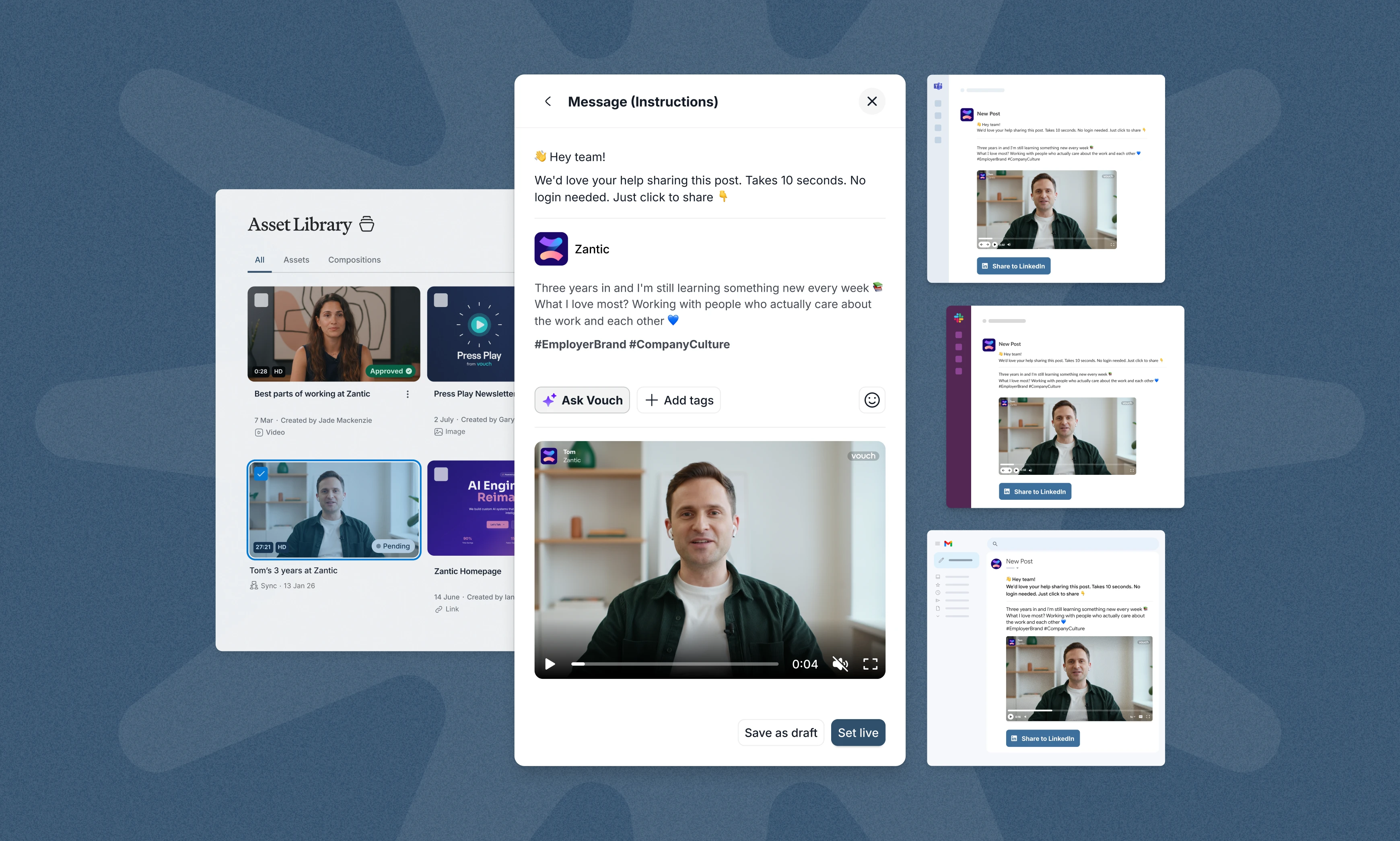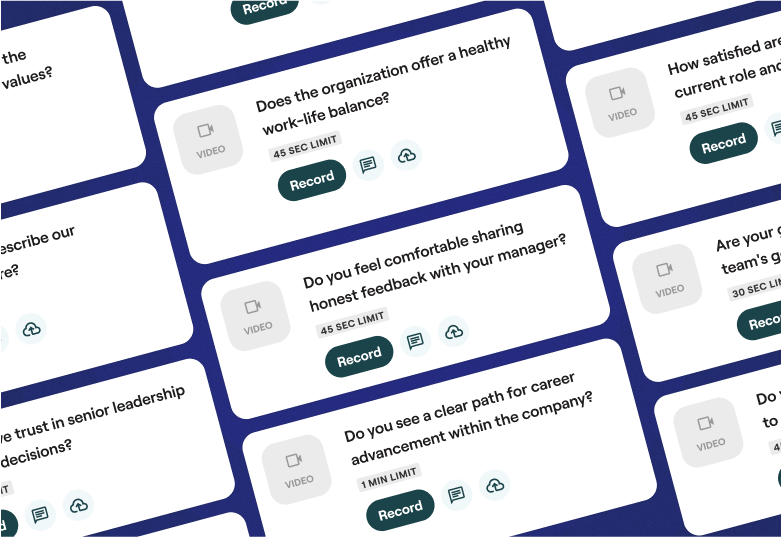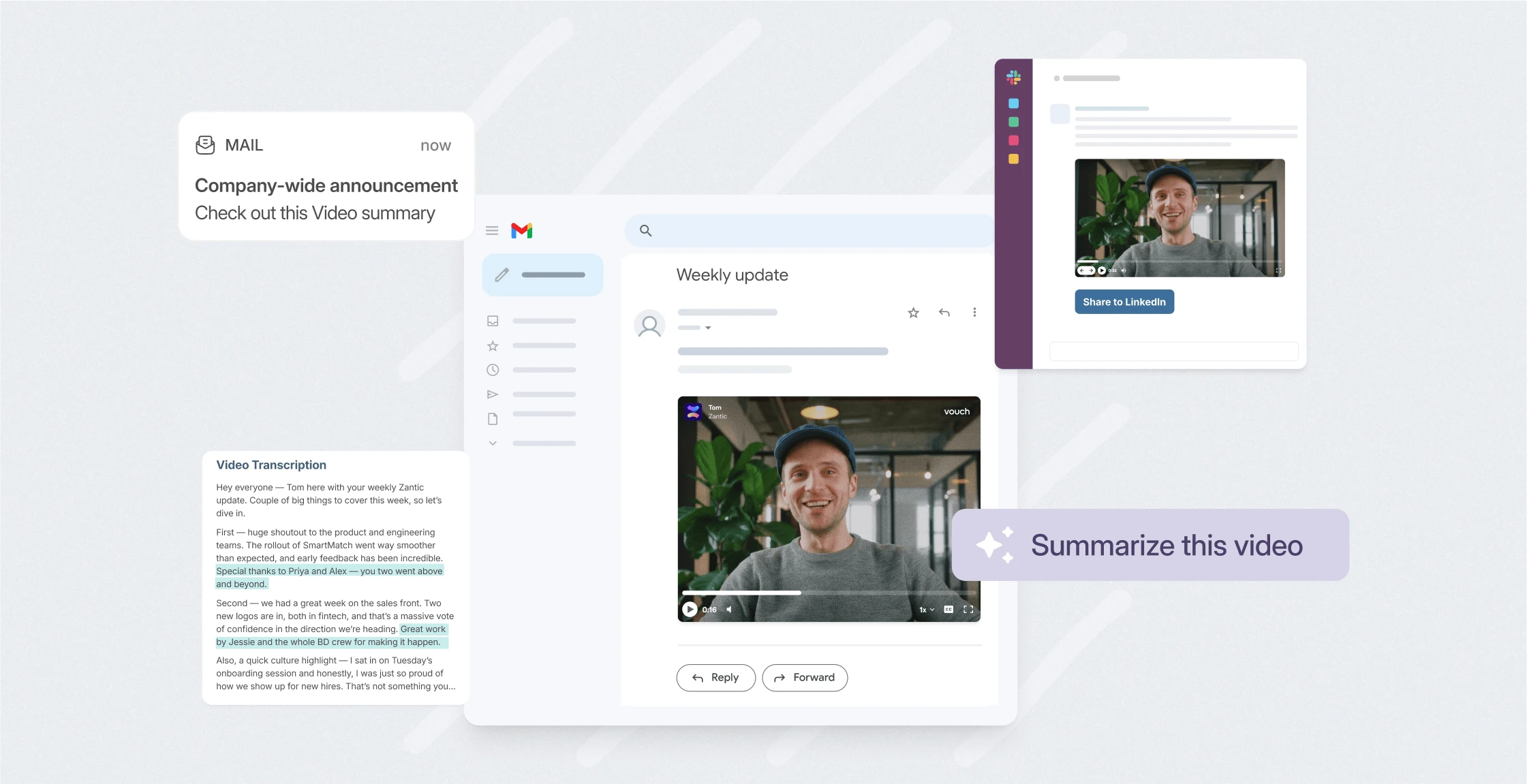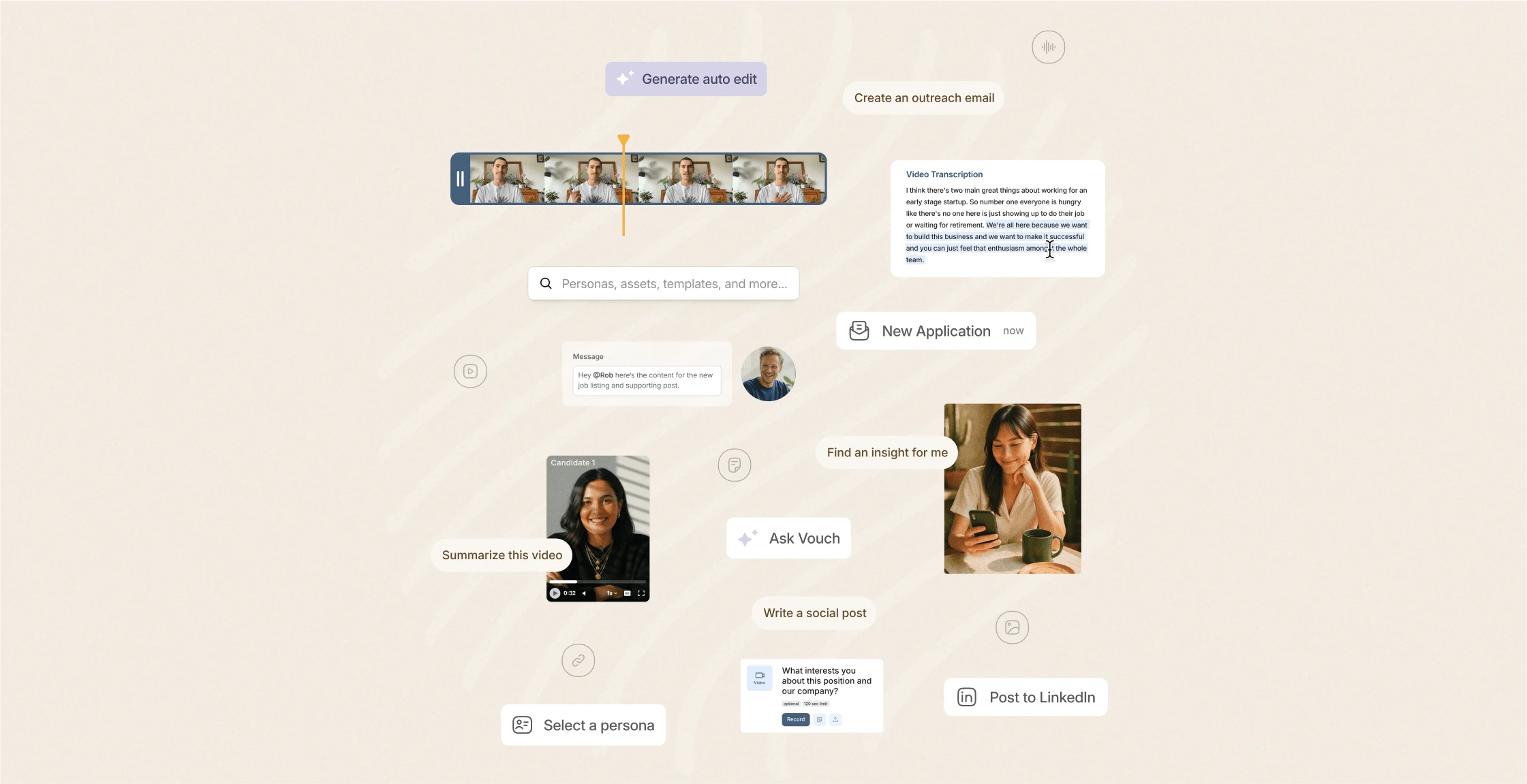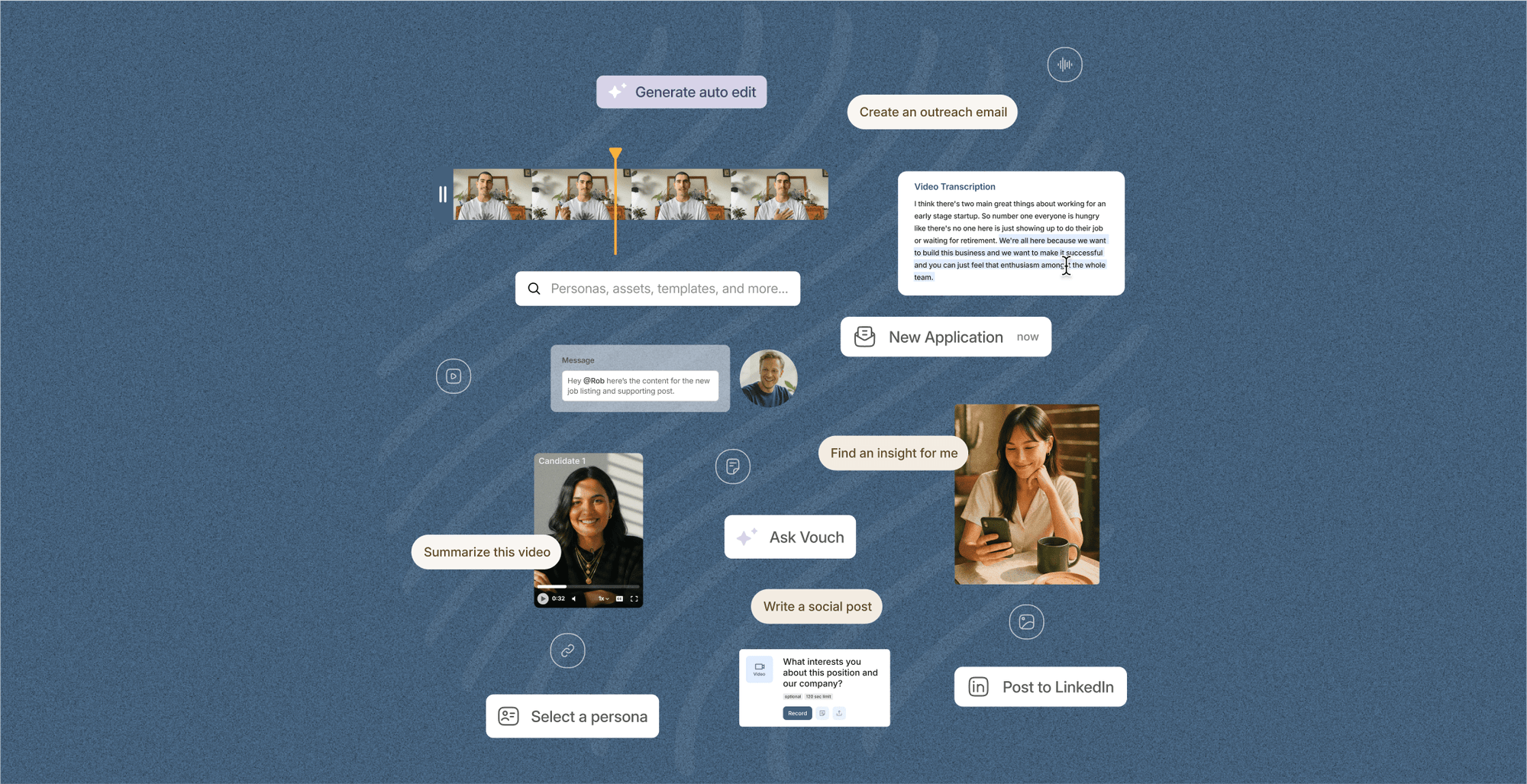According to a 2023 Gallup report, only 23% of employees globally feel engaged at work, meaning it's likely that your businesses have a lot of work to do.
To improve your employee engagement, your organization needs to ask the right questions that lead to actionable insights - whether you're using monthly or annual employee engagement surveys with tools like Vouch, pulse surveys, or casual conversations, this guide will provide 21 key questions designed to help you tackle tough issues like disengaged employees, job satisfaction, and trust in leadership.
So, let's get started!
Why Are Your Employee Engagement Questions So Important?
Employee engagement questions serve as an essential tool to measure your employees' sentiments, identify drivers of employee engagement, and uncover differences across your company's teams and departments.
Effective employee engagement surveys do more than just gather feedback - they build a foundation for employee advocacy, build better leadership behavior, and career development opportunities.
So, if you're ready to take action, below are 21 employee engagement survey questions that touch on everything from workplace culture to professional growth.
And don't forget to try Vouch - it's used by companies like Canva, Nike, Cisco, HubSpot, Amazon, and more for employee engagement.
Bring your employer brand to life
- Empower employees’ storytelling
- Transform careers sites with video
- AI-driven video editing
- Publish videos anywhere
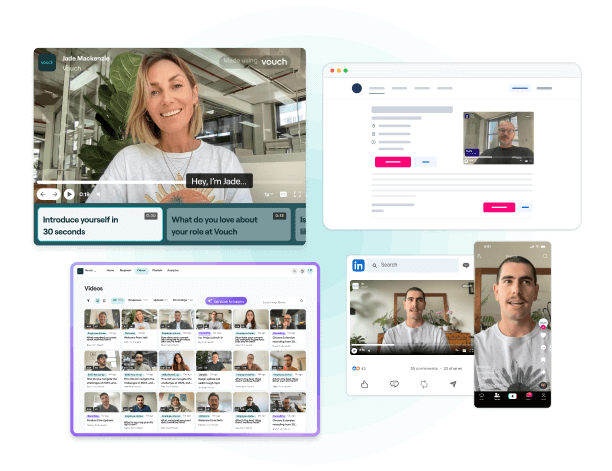
21 Employee Engagement Questions for 2026:
1. Do you feel aligned with the company's mission and values?
Purpose-driven employees are more engaged. Identify if team members believe in the company mission.
2. How would you describe our workplace culture?
Workplace culture directly impacts employee happiness and engagement levels.
3. Do you have trust in senior leadership and their decisions?
A strong level of trust fosters better team performance and engagement over time.
4. Do you feel your job role contributes to company goals?
Employees need to understand how their work impacts broader company objectives.
5. Do you have access to professional development opportunities?
Career development is a key driver of employee satisfaction and growth.
6. Does the organization offer a healthy work-life balance?
Work-life balance is essential for happier employees and reduced burnout.
7. Do you feel comfortable sharing honest feedback with your manager?
Psychological safety leads to honest communication and actionable feedback.
8. Do you see a clear path for career advancement within the company?
Without growth opportunities, disengaged employees are more likely to leave.
9. Do you feel appreciated for your contributions?
Employee appreciation creates advocacy and boosts satisfaction.
10. How satisfied are you with your current role and responsibilities?
Job satisfaction is a foundational element of engagement.
11. Are your goals aligned with your team's goals?
Alignment promotes collaboration and improved team performance.
12. Do you have the tools and resources to perform your job effectively?
A lack of resources can negatively impact performance outcomes.
13. How would you rate communication across departments?
Honest communication and transparency are vital for a thriving workplace environment.
14. Do you feel valued by fellow employees and leadership?
Feeling valued leads to stronger employee morale and loyalty.
15. How often do you receive meaningful feedback from leadership?
Regular feedback helps employees track personal growth and career goals.
16. Do you feel included and respected in the organization?
Inclusion is a key element of employee engagement strategies.
17. What motivates you most in your current job?
Understanding motivations provides actionable insights for employee satisfaction surveys.
18. Do you feel your opinions are taken seriously during decision-making?
Building a strong feedback loop empowers employees to engage fully.
19. Are your career aspirations supported by the company?
Employees want to see alignment between their career development goals and company plans.
20. How do you feel about the company's approach to diversity and inclusion?
A diverse and inclusive workplace fosters trust and improves levels of engagement.
21. What improvements would you like to see in the workplace environment?
Employee feedback questions like this one lead to continuous feedback and better action-planning tools.
Creating Effective Employee Engagement Surveys
To ensure these employee engagement questions provide valuable insights, follow these tips:
- Use Vouch For Surveys: Instead of relying solely on text-based surveys, conduct video surveys regularly with Vouch for quick insights that you can share with your leaders and executive teams.
- Encourage Honest Feedback: Create an environment of trust where employees feel comfortable sharing their thoughts.
- Tailor Surveys to Company Size: Large organizations may need a broader range of topics, while smaller ones can focus on specific issues.
- Benchmark Results: Compare survey results with industry benchmarks like Gallup Access to gauge progress.
- Close the Feedback Loop: Always share results with employees and create action plans to address concerns.
What Are The Benefits of Employee Engagement in 2026?
Organizations that prioritize engagement experience can see some remarkable results, including:
- Lower turnover: High-turnover organizations see engagement as a critical role in retention.
- Increased employee advocacy: Engaged employees promote the company's values.
- Better performance outcomes: A motivated workforce directly impacts organizational success.
- Higher participation rates: Employees who feel heard are more likely to participate in surveys and conversations, which will help grow your employer brand.
FAQs
What are employee engagement questions?
They're survey questions designed to measure engagement levels and identify actionable areas for improvement.
How often should employee engagement surveys be conducted?
Pulse surveys can be done monthly or quarterly, while annual surveys provide a comprehensive view.
What's the difference between employee satisfaction and engagement?
Satisfaction is about contentment, while engagement focuses on motivation and connection to company goals.
How do I improve survey participation rates?
Offer anonymity, share results, and create action plans to encourage honest participation.
What's the role of leadership in employee engagement?
Leadership behavior sets the tone for workplace culture and trust.
What's an example of a fun employee survey question?
If you could change one thing about the workplace, what would it be?
How do disengaged employees impact the company?
They decrease productivity, increase turnover, and negatively affect team morale.
Final Thoughts
Employee engagement questions are a powerful tool for improving company culture, performance management, and employee satisfaction.
By asking these 21 questions in 2026, companies can gain a deeper understanding of their workforce and create meaningful action plans to boost engagement.
See How Vouch Drives Employee Engagement!
Loved by companies like Canva, Nike, Cisco, HubSpot, Amazon, and more, tools like Vouch make leveraging video in your business and improving employee engagement remarkably easy.
Be sure to book a Vouch demo today to chat with a video content expert.
You might also like

Elevate Your Brand Today With Vouch
Discover how Vouch can accelerate talent acquisition while helping you stay on-brand.

